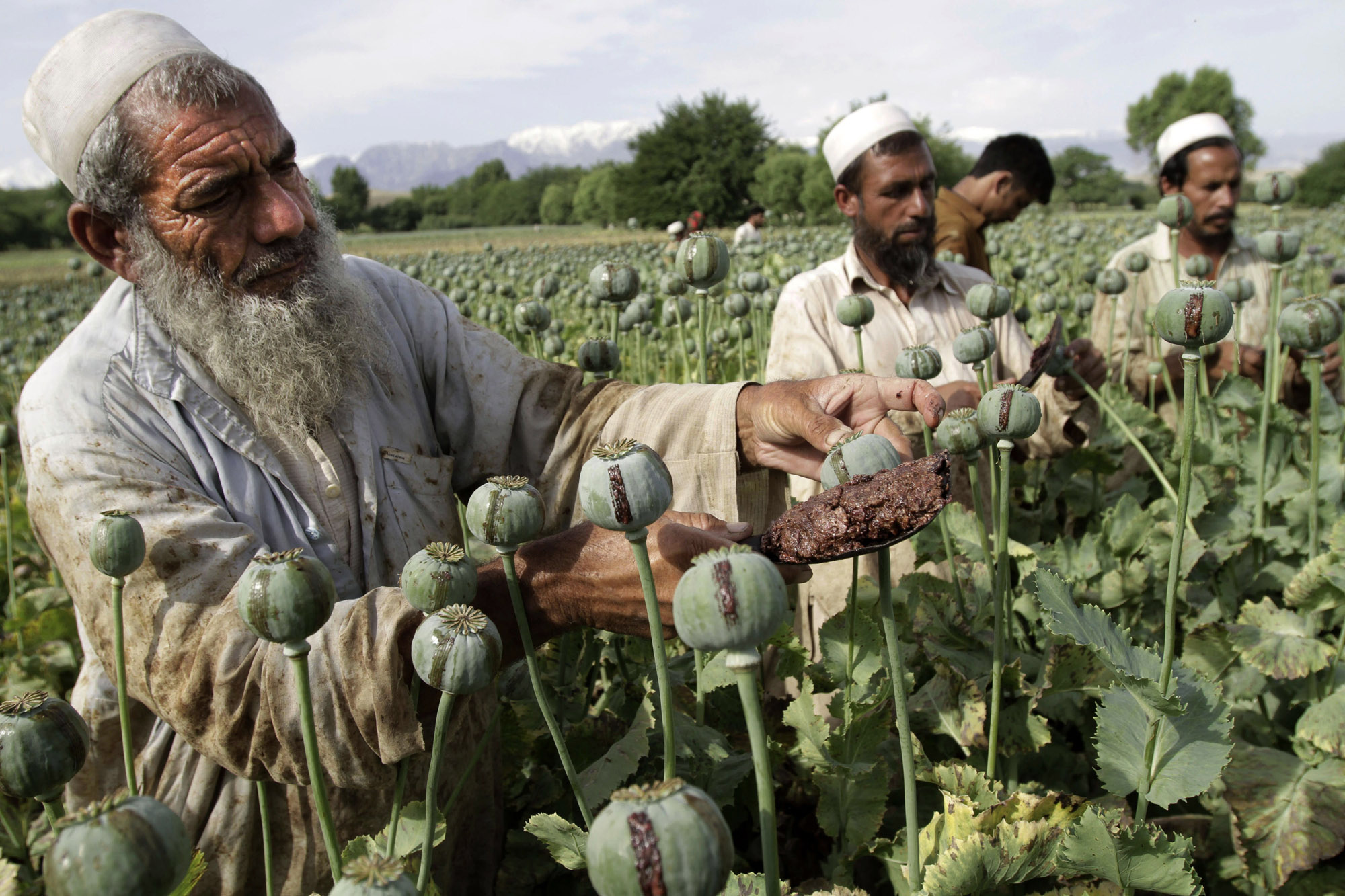Afghan's Opium Industry and Insurgency Boom
Afghan farmers collect raw opium as they work in a poppy field in Khogyani district of Jalalabad

NEW DELHI: A report by the United Nations Office on Drugs and Crime (UNODC) has concluded that opium poppy cultivation in Afghanistan has hit a record high this year, rising by seven percent over the 2013 figure and accounting for 90 percent of the world's heroin supply.
According to the report, with this increase in cultivation, Afghanistan could produce 6,400 tons (7,054 U.S. tons) of opium, or 17 percent more than in 2013.
This increase has a direct link with insurgency in Afghanistan, with 89 percent of the area used for poppy cultivation -- which grew to 224,000 hectares (553,500 acres) this year -- concentrated in nine provinces within significant Taliban presence.
Andrey Avetisyan, the UNODC's regional representative told reporters that, “without tackling the problem of drugs seriously, no serious economic achievement is possible to develop Afghanistan… to help Afghanistan with economic development, we all together have to finally seriously do something with the threat of narcotics."
Another report, issued by experts monitoring sanctions against the Taliban and presented to the United Nations Security Council earlier this year, elaborates on the link between the Taliban and opium cultivation. In highlights the emergence of the Taliban as an economic factor, drawing on finances from poppy cultivation. “As Taliban finances have grown, the Taliban have become more of an economic actor, with incentives to preserve this income and less potential incentive to negotiate with the government,” the report said.
This is corroborated by a US report by the Special Inspector General for Afghanistan Reconstruction (SIGAR) released earlier this year that concluded that opium cultivation in the conflict ridden country was at an all time high despite the US spending $7.5 billion to tackle it. Since 2012, there has been a 36 percent increase in the land being used for poppy cultivation in Afghanistan, currently at a record 209,000 hectares (516,230 acres). Drug use amongst Afghans has also seen an increase according to the report, with 1.3 million Afghan adults being classified as regular drug users, an increase from 1 million in 2009.
Financially, the Taliban seems to have benefited from a fiscally productive year with drugs, illegal mining, corruption and extortion contributing to the militants’ earnings. The Taliban is transforming from a group “based on religiously couched ideology to a coalition of increasingly criminalised networks, guided by the profit motive,” the report said. The report quoted Afghan security officials estimating that the militants extract $7-8 million a month from the southern province of Kandahar, and that this figure could touch $50 million from the neighbouring poppy producing region of Helmand province, as farmers were expected to pay 10 percent of earnings as “tax” to the Taliban.
Following the recent UNODC report, Afghanistan's Minister for Counter-Narcotics Din Mohammad Mubariz Rashidi urged countries to help control the drug's production and trade. "The international community must fight opium drugs and poppy cultivation in Afghanistan as seriously as they fight terrorism," Rashidi said.



